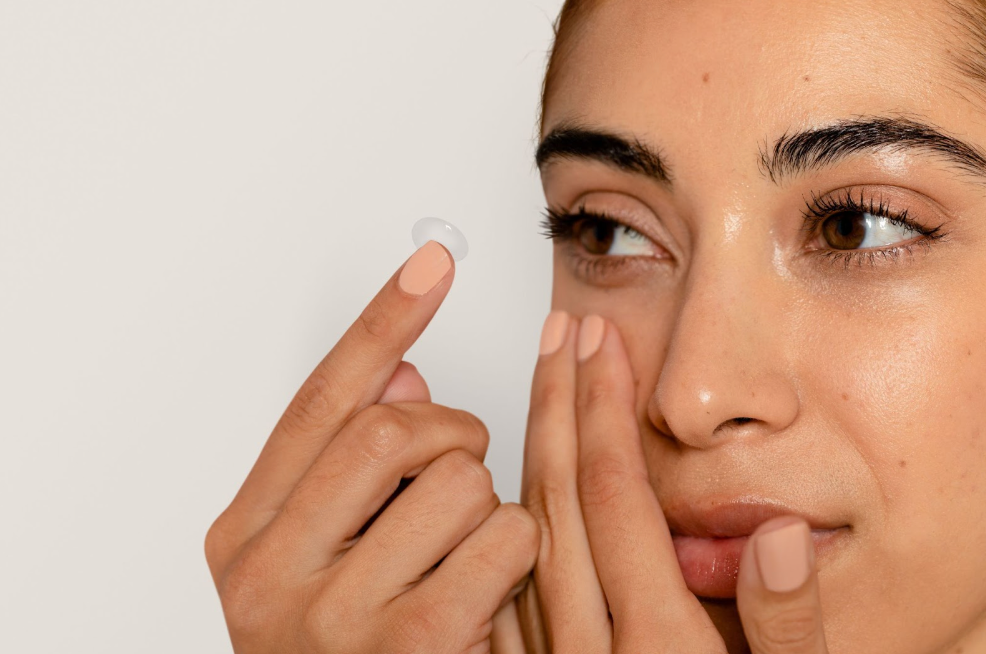
If you wear contact lenses, you probably don’t spend much time thinking about their expiration dates. After all, they’re just little pieces of plastic (or silicone hydrogel), right? Not quite.
Contact lenses are medical devices, and just like prescription medications or skincare products, they come with an expiration date for a reason.
Using expired contacts might not seem like a big deal, but it can put your eye health at risk. At ProVision, we want to help you understand why contacts expire, what happens if you use them past their expiration date, and how to store them properly to maximize their lifespan.
Why Do Contact Lenses Expire?
Most contact lens boxes have an expiration date printed on them, usually labeled as “EXP,” followed by a month and year. This date isn’t just a suggestion—it’s the last day the manufacturer can guarantee that the lenses are safe to use.
So, why do they expire?
1. The Material Degrades
Soft contact lenses are made from flexible materials that allow oxygen to pass through to your eyes. Over time, these materials can break down, even if the lenses are still sealed in their packaging.
When this deterioration happens, the lenses may become brittle, stiff, or lose their ability to hold moisture properly. Expired lenses can feel uncomfortable and increase the risk of eye irritation. The change in shape also limits their ability to correct your vision.
2. The Sterility of the Packaging Weakens
Contact lenses come in sterile packaging filled with a saline solution to keep them moist and bacteria-free. But over time, even sealed packaging can become compromised. The longer the lenses sit on a shelf, the higher the chance that bacteria or fungi can find their way inside.
3. Solution Breakdown
The saline solution in which the lenses are stored doesn’t last forever. Eventually, the preservatives break down, reducing the solution's effectiveness in keeping the lenses clean and contamination-free.
4. Storage Conditions Matter
If your lenses are exposed to heat, humidity, or direct sunlight, they may expire sooner than the printed date. Extreme temperatures can accelerate the breakdown of the lens material and the packaging.
How Long Do Contact Lenses Last?
Generally, contact lenses have an expiration period ranging from 1 to 4 years from the date of manufacturing. Here’s a rough guideline of what to expect based on the type of contact lenses:
Daily disposable or single-use lenses should never be reused
If you find an unopened box that’s past its expiration date, don’t risk using them
Bi-weekly & monthly lenses, when unopened & stored correctly, typically expire within 1–4 years
Once the package is opened, follow the replacement schedule
Rigid gas permeable (RGP) or “hard” lenses last longer, with 1 pair typically lasting 2–3 years
Check the packaging for the expiration date
If you’re unsure whether your lenses are still good to use, check the expiration date on the packaging. If they’re past the date, it’s time to toss them.

Risks of Wearing Expired Contact Lenses
Expired contact lenses should not be worn, as they can lead to potential eye health issues. Wearing lenses past their expiration date can increase the risk of infections, allergic reactions, eye irritation, and blurred vision.
1. Increased Risk of Eye Infections
Bacteria, fungi, and other harmful microorganisms can contaminate expired lenses. Since contact lenses sit directly on your eye, this can lead to infections such as:
Keratitis (corneal inflammation) which can cause redness, light sensitivity, and blurred vision
Conjunctivitis, commonly known as pink eye (swelling or inflammation), can cause redness, irritation, & discharge
Corneal ulcers (open sores on the eye) that may lead to permanent vision impairment if left untreated
2. Discomfort & Irritation
As lenses age, they lose their moisture-retaining properties, making them dry and uncomfortable. Expired lenses can become stiff or brittle, which may cause them to scratch or irritate your eyes.
3. Blurry or Reduced Vision
Degraded lenses may not correct your vision as effectively as they should. If your contacts feel “off” or your vision seems blurry even after cleaning them, expired lenses could be the culprit.
4. Allergic Reactions
Expired lenses can accumulate allergens, dust, or other particles that might trigger eye allergies. Common eye allergy symptoms include redness, itchiness, light sensitivity, and excessive tearing.
How to Store & Care for Your Contact Lenses
Proper storage and care can help keep your contact lenses safe and effective until their expiration date. Follow these tips to help maximize the lifespan of your lenses.
1. Always Check the Expiration Date
Double-check the date on the box before opening a new pack of lenses. If the expiration date has passed, don’t use them—just throw them away.
2. Store in a Cool, Dry Place
Keep your contacts in a cool, dry place, away from direct sunlight, humidity, and extreme temperatures. Avoid leaving them in the car, near heaters, or in bathrooms where moisture can build up.
3. Use Fresh Contact Lens Solution
Never store or clean your lenses with tap water, saliva, or expired solution. Always use fresh, sterile contact lens solution to clean and store your lenses.
4. Replace Your Lens Case Regularly
If not cleaned properly, your contact lens case can become a breeding ground for bacteria. Rinse it with fresh contact lens solution daily.
Replace your contact lens case at least every 3 months. Even if you clean your case regularly, microscopic damage or cracks can develop, leading to bacterial buildup.
5. Wash Your Hands Before Handling Lenses
Always wash and dry your hands before touching your lenses to avoid transferring dirt, oil, or bacteria to your eyes.
Keep Your Eyes Safe with Fresh Contact Lenses
Contact lenses can make life easier for millions of people, but taking care of your lenses is essential for protecting your vision. Expired lenses can lead to discomfort, infections, and vision damage, so there are significant benefits to replacing them on time.
If you’re unsure about the expiration date of your contacts or have any concerns about your eye health, schedule a contact lens exam. Our team at ProVision can help you find a fit that feels right and provide tips about lens care. We’re here to help you see clearly—safely!










